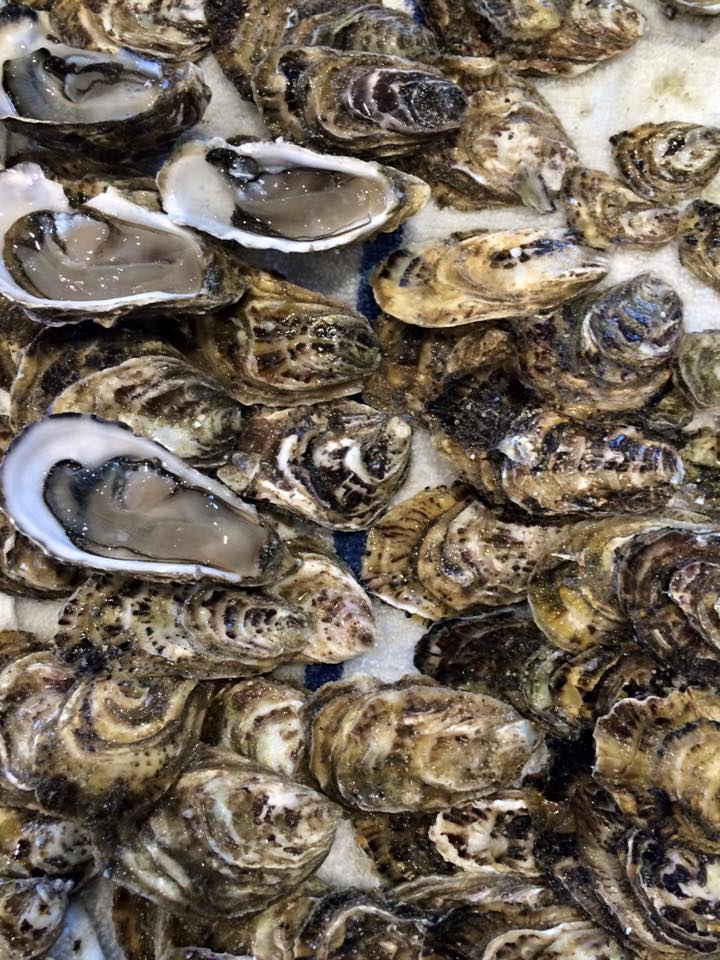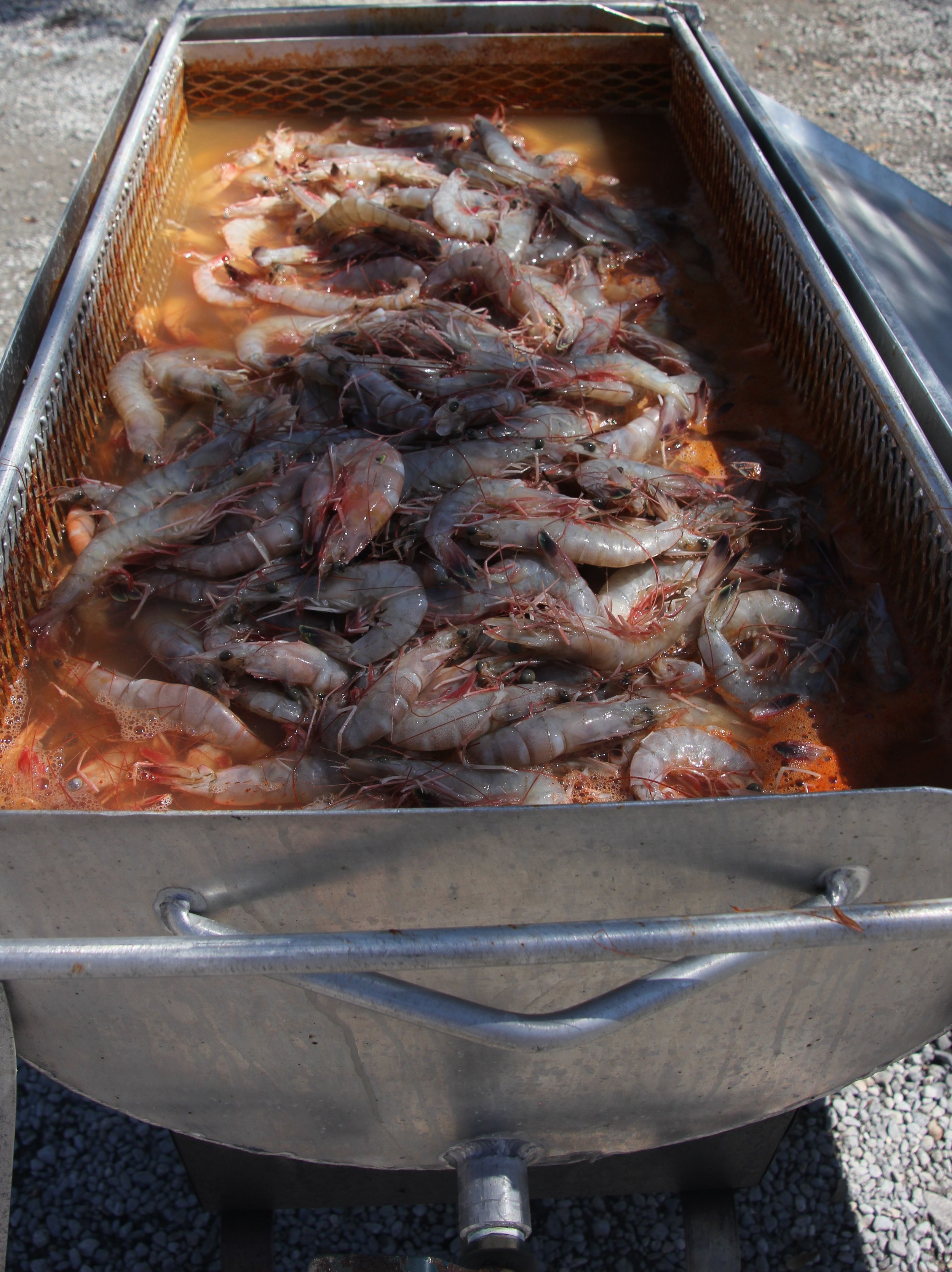by Sarah M. Shoffler, SFUSD Seafood Liaison
In March 2016, over 200 fishermen, fishmongers, chefs, scholars, activists, students and community leaders gathered in New Orleans for four days of stories, food, art and music. Slow Fish 2016 was glorious. We shared our successes and our challenges in striving for good, clean & fair seafood for all. Sarah tells us more about this event and how San Diegans can apply good, clean & fair values to our seafood consumption.
“The world’s fisheries are in trouble. 70% are either exploited, overexploited or have already collapsed” is what media tells us. This leaves the impression that we manage our fisheries so poorly that we’ll soon empty the oceans of seafood. Not so.

In the U.S. at least, our fishermen are among the most stringently managed. If they catch too many fish or harm protected populations (e.g. dolphins or endangered turtles), we have to do something – shut down the fishery, or change fishing gear, season, location, etc. The number of fish populations overfished in the U.S. is decreasing, not increasing.
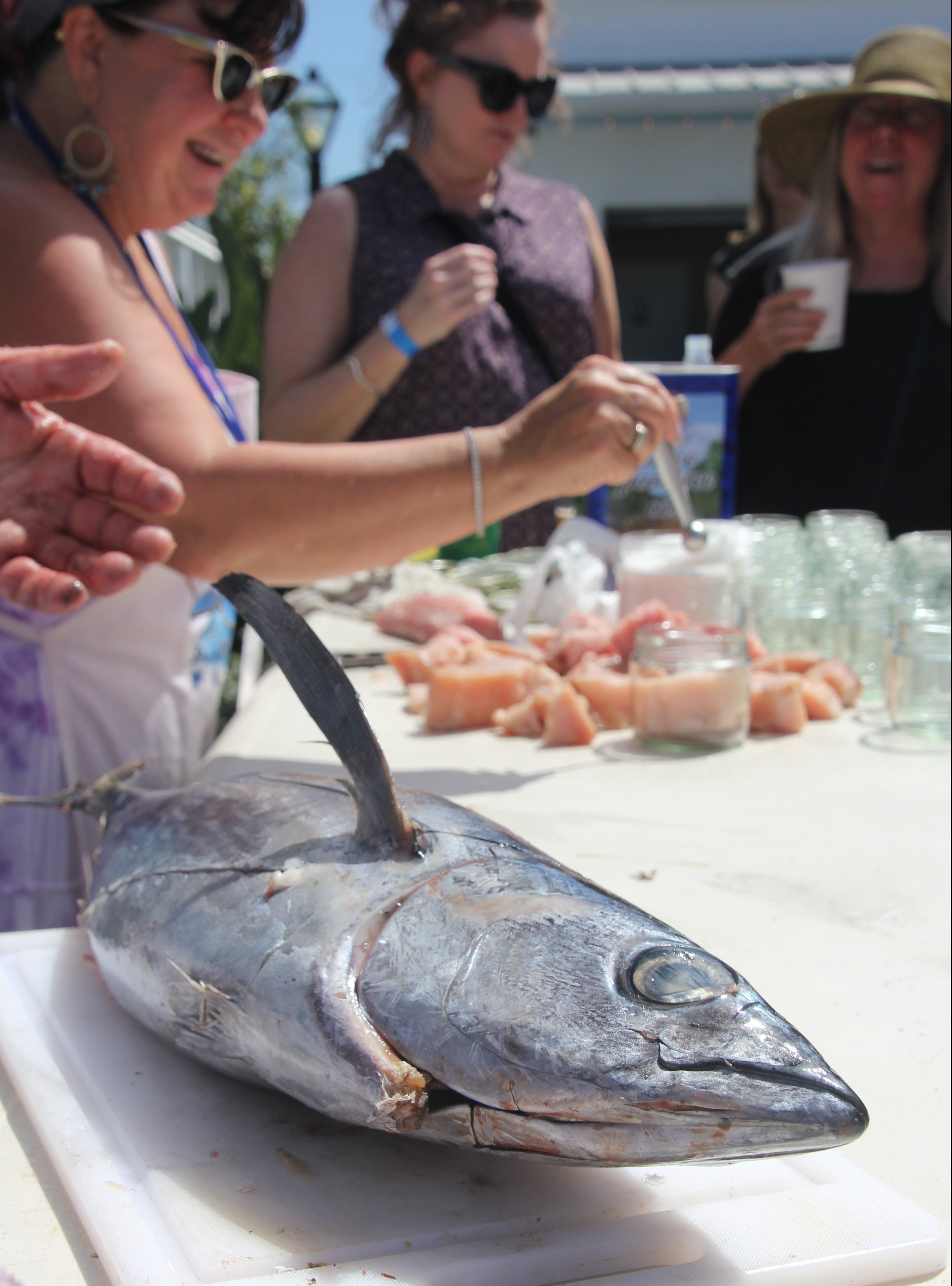
What can we do? How can we wade through the misinformation and support a healthy seafood system? Enter Slow Fish, a grassroots international campaign to promote good, clean & fair seafood. We do this while bringing joy to the efforts to restore marine ecosystems and support fishing communities. That’s a deep order, so how do we do it?

In March 2016, over 200 fishermen, fishmongers, chefs, scholars, activists, students and community leaders gathered in New Orleans for four days of stories, food, art and music. Slow Fish 2016 was glorious. We shared our successes and our challenges in striving for good, clean & fair seafood for all.
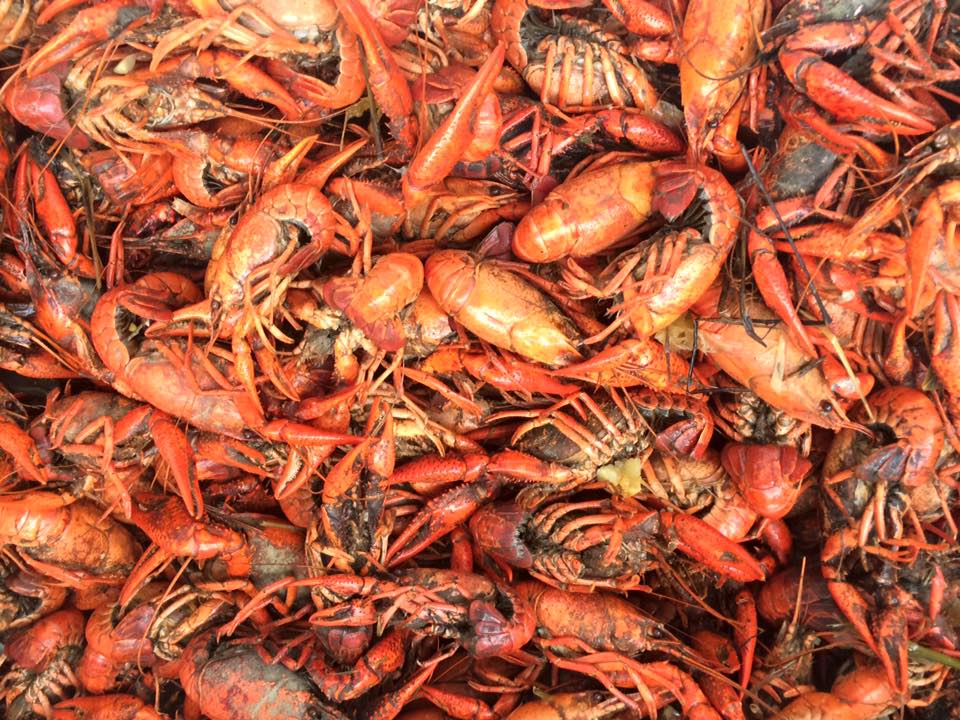
Local attendees included: Sea urchin fisherman and community leader, Peter Halmay, who shared how a fishermen's market in San Diego was created; Chef Drew Deckman of Deckman's en el Mogor, a Slow Fish advocate who cooked and shucked his weight in oysters for us; Scripps Institution of Oceanography student volunteers: Flora Drury, Kate Masury and Catherine Courtier, who's masters projects focus on fishermen's markets, value chains and sustainable seafood; SFUSD member, Eric Buchanan, who volunteered as official event photographer; SFUSD's vice chair and seafood liaison Sarah Shoffler, who was on the event planning team with partners from across the U.S. plus Canada and Italy.

I met family fishermen from Florida to Alaska, who continuously adapt their practices to changing management and ecosystems. They fish in small boats. Or large. They use the most up to date gear with turtle excluder devices and pingers (to avoid dolphins). They fish weirs, fishing gear whose origin dates back to before the emergence of modern humans. They are young – I met a 20 year old woman named Erica from Nova Scotia, who fishes weirs with her father. They are not so young – San Diegan sea urchin diver Pete Halmay joined us and shared his story of starting San Diego’s first fishermen’s market – where fishermen sell their catch directly to the public.
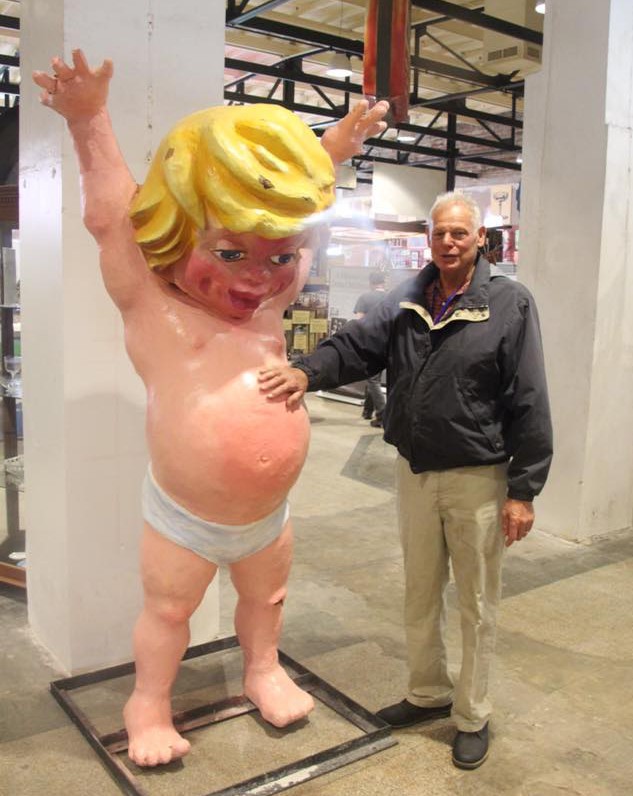
These people love the ocean and what it brings us.
Fishmongers from Moss Landing shared how they started a community supported fishery (CSF) and a “Bay-to-Tray” program where they provide bycatch from the black cod fishery to school lunch programs –animals that would otherwise be wasted. Another fisherman shared his story of building a business where he takes people fishing on San Francisco Bay and teaching them to cook what they eat. We heard so many big and small ways of supporting a healthy food system, one based on good, clean & fair seafood for all.
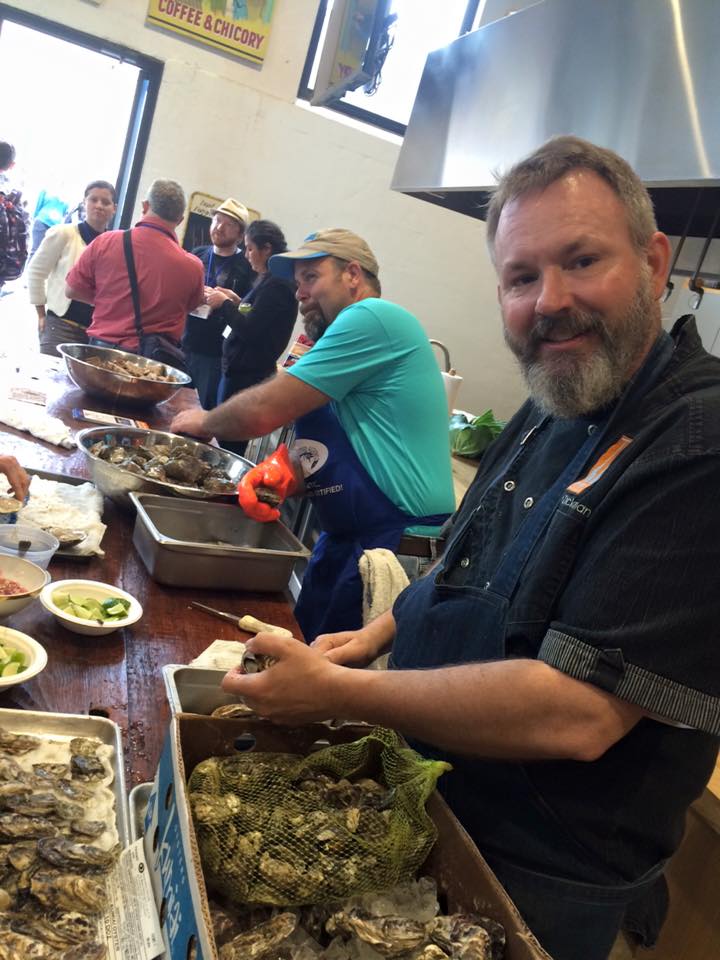
I was buoyed to learn that efforts in San Diego to support our small-scale fisheries are seen as successes elsewhere. And that by supporting local fishermen with my business, I invest in families and the local economy as well as give hope to folks who are so often portrayed as the enemy to our marine ecosystem, when in fact they offer many of the solutions to sustain it.
SFUSD Slow Fish Plans
(1) Now: Connect local chefs directly to local fishermen - this is the best way to get the freshest most sustainable seafood on our restaurant plates. If any chefs would like to meet our local seafood producers, please get in touch.
(2) Soon: Collaborate with local chefs, fishermen, fishmongers and others to bring you Seafood Saturdays - a campaign to promote local US-caught seafood in San Diego and to teach San Diegans how to prepare, cook and enjoy the local bounty. Check us out at the Tuna Harbor pier starting April 16th.
(3) Future: Research barriers to keeping local seafood local. Why is the local catch sent outside the City, County and Country? How can we keep it here? Why should we?
(4) Future: Keep our waterfront a working waterfront. How can we maintain our cultural heritage as a fishing community? How can we revive it? How do we keep the harvest of this healthy and delicious resource in our community?
What’s a seafood lover to do?
- Eat locally-harvested wild-capture fish – you support local families and the local economy
- If you can’t buy local, buy U.S. wild-capture seafood
- Ask how, when and where your seafood was caught
- Try new things – eat a variety of seafoods so we don’t overpressure just one population
- Encourage the Port of San Diego to keep our waterfront a working waterfront – to maintain space for our fishing industry.
- Get in touch with Slow Food Urban San Diego and join our Slow Fish team.



